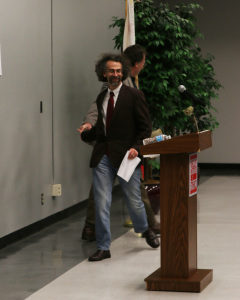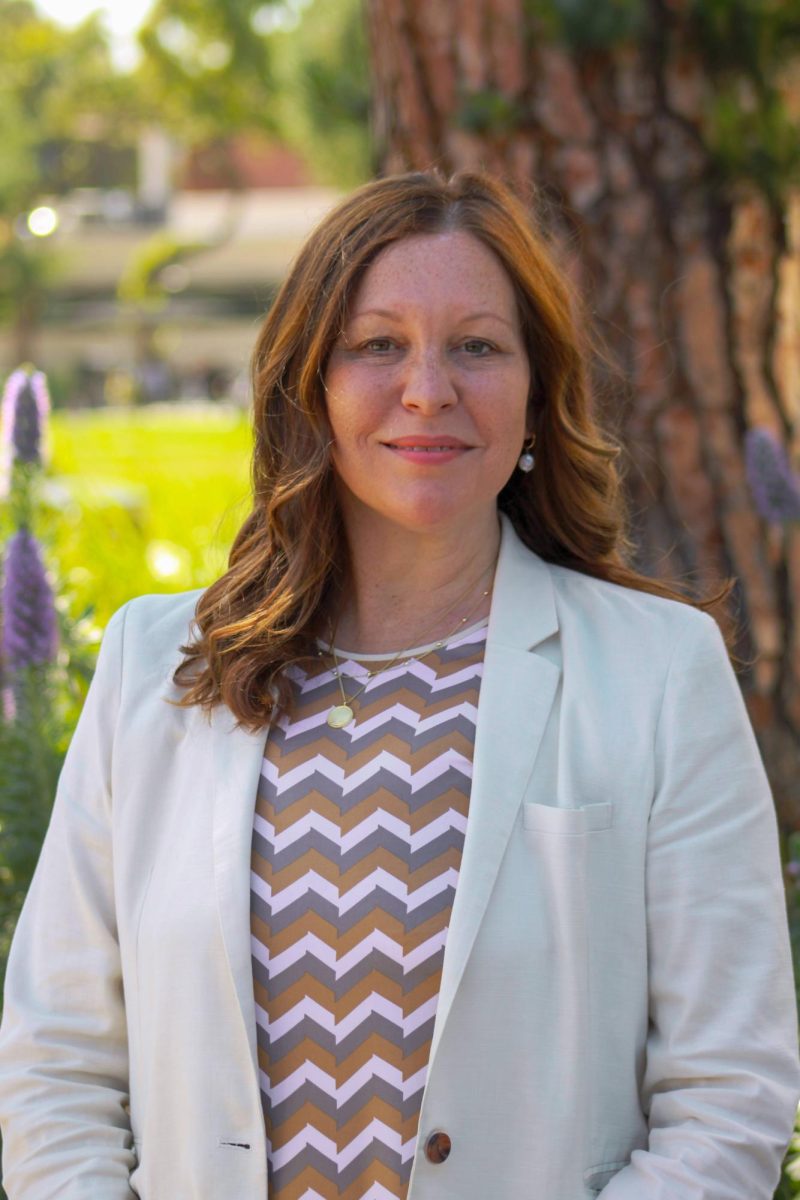By Barry Ramirez
Reporter
On Wednesday, January 14, students, faculty, and concerned citizens filled the Student Union to hear Sasha Abramsky talk about his book “The American Way of Poverty: How the Other Half Still Lives.”
If your initial impression is that this was only another author revamping the uncommon horrors of rare and irresponsible Americans, you would be wrong.
Poverty, abramsky argues, is becoming more common than we should be comfortable with. Abramsky began his lecture on what would be a short-winded, sanguine note.
“Nationally,” he said, “unemployment is now down 5.7 percent. It’s actually at the lowest level it’s been in America since the 1990’s…On a monthly basis, more than a quarter of a million jobs are being created in America.”
Bringing the good news closer to home, California for the first time in ten years actually has a surplus in budget. Despite the current estimations of national unemployment and the heralding of the death of the recession, poverty is as terrible and pressing as it’s ever been.
Abramsky differentiated between two types of unemployment. If a person is actively seeking work but is unsuccessful, then that person becomes statistically unemployed. However, if a person has deemed the labor market “hostile” and doesn’t actively search work, then that person becomes, effectively, “invisible.” Put another way, they’re not even a statistic, a number on a page.
There is another angle from which we can view the current well-being of the economy, Abramsky posits. The current growth rate for the economy is two or three percent annually. Yet, when you analyze where the growth is going—how the wealth is distributed—another, disconcerting story is told.
Abramsky broke down the conventional economic pyramid as it currently looms: “You have a small number right at the top, who are earning millions, or if you’re a hedge fund manager billions of dollars a year. Then you have people in the middle, professionals, people earning fairly decent money but by no means are rich. Then you got the people at the bottom, who are on a daily basis chronically economically insecure.”
If an economy is functioning healthily, then all tiers of the pyramid ought to improve. However, as it currently operates, the growth of the economy returns to the people at the pinnacle; the top five percent, and most of that to the one percent within the five percent. Of course, this isn’t a problem if you’re wealthy. But if you’re poor, then these are troubling economic times. “the new normal,” abramsky hailed, “is insecure. The new normal is profoundly unequal. And the new normal for tens of millions of Americans represents downward mobility.”
Traveling the country, he interviewed people who were barely able to pay their rent and people who were in “deep poverty.” He spoke of one couple that he had met in New Mexico who had lost their mobile home, but kept and lived in a storage unit on the land. There were no windows or ventilation in the unit.
“I said to them ‘what do you want? What are your aspirations?’ the women laughed nervously, and she looked at me and said I dream of having a flushed toilet. This was in the year of 2011, in the richest country in human history and this woman’s aspirations had been reduced to longing for running water and a flushing toilet.” While recanting the intimate stories of the abject poor is important and necessary, abramsky ended his podium with possible tactics that could circumvent the problems of poverty in the future.
He discussed a “public works reserve fund” that would function like social security. Everyone pays into a single account, and when an economic catastrophe like that of 2008 implodes, there are financial means to intervene and save jobs. Emily Lyons, a 23 year old philosophy major, commented that she was “inspired” by abramsky’s lecture.
“I’d be really interested to hear somebody challenge it, because I’m having trouble thinking of any ways that I don’t agree with him,” she said.
Jesus Garcia, on the other hand, a 30 year old who is working on his master in education, felt that while the talk was “right on the button” in assessing the magnitude and tragedy of poverty, he didn’t genuinely take account for the element of self-responsibility.
“When my family first moved to this country,” he said, “we were dead broke. We were too broke to realize that we were broke.”
 You got to push, you got to push people to get out of that. If you don’t push them, they conform and that’s the way it is.” The podium was ended with the din of laughter as an audience member likened the discussion to a cathartic, sexual experience. Saying he was “ready to go home and smoke a cigarette.” By which he likely meant that the lecture didn’t offer sturdy, practical solutions.
You got to push, you got to push people to get out of that. If you don’t push them, they conform and that’s the way it is.” The podium was ended with the din of laughter as an audience member likened the discussion to a cathartic, sexual experience. Saying he was “ready to go home and smoke a cigarette.” By which he likely meant that the lecture didn’t offer sturdy, practical solutions.






